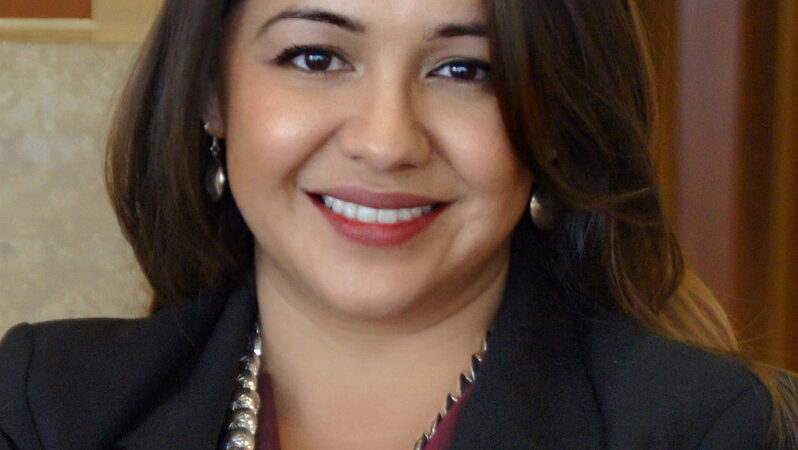
2020 Pritzker Award Finalist Clara Pratte — “A Vast Land, and a Vast Future”
Growing up on the Navajo Nation I truly felt lucky to be there. The vastness of the land, the ability to play outdoors all day, raising sheep, understanding self-sufficiency, and being in close proximity to nearly every extended family member I never felt like I was lacking in what I needed. As I grew up, I became more aware of the haves and the have nots. I wondered how we could be so rich in so many ways and still not have what it seemed like everyone else had: basic infrastructure in the forms of running water and electricity.
The lack of resources and infrastructure became more apparent and striking the older I got. The systemic racism glared in my face every day. Whether that was the border town waitress asking me what “she” wanted, pointing to my mother assuming she couldn’t speak English, to the teenage boy that spit on us as we entered the grocery store one time telling us to “go back to the reservation.” It all felt so unfair and impossible to change from where I sat. I felt someday somehow, I wanted to make sure others didn’t have to be ashamed that they didn’t have running water or electricity. They didn’t have to hide that they took baths in a basin or at a local truck stop or that they did homework by kerosene light. Children can be cruel and the teasing from people that did not live on the reservation could be harsh. This created a racial division and tension between Native and non-Native children. I remember one girl, who I considered a friend, said “Oh you know how they are (referring to Navajos)” when she saw my face she said, “but you’re not like them you know I mean you’re only half. ”It broke my heart and I never spoke to her again.
I ended up going to school and sacrificed being with my family for years to fulfill a dream of making things better. Countless family events, ceremonies, and connection with my family gone. My language skills and hopes of being fully fluent in my native language gone. A feeling of being so far away from all that is important was ever pervasive in the back of my mind. The months became years and then became over a decade. I came home to kids that had already grown up without me being there for them. It made me sad and still I have an incredible sense of loss.
During those years away I found myself fighting for social and economic justice to keep coal plant running on the Navajo Nation because I know in my bones what it’s like for a family to go without. I didn’t want that for others. So, I fought to keep polluting because there was no alternative.
The tide has turned, renewables are now economically viable and with that opportunity comes another wave of outsiders looking to cash in on another tribal resource. This time it’s not coal, oil, gas, or uranium. It’s the land and the sun. Like other developers they come, they seek to get a lease, and the local communities see no real benefit. Homes go without electricity even as transmission lines buzz overhead. There had to be a better way. In 2018 I became part of a team of amazing, talented, and morally compassed people. Joining as a co-founder of Navajo Power, Public Benefit Corporation we committed to bringing solar to the Navajo Nation while benefiting local communities. We are changing the paradigm. We are building in a way that makes sense for tribal communities, at their direction, for their benefit. We often say if one home is without, we have failed. I can look in the eyes of local people and say “we are here for the long haul to work with you” and know that it’s true.
Being able to bring that to my people who can chart their own destiny and decide how they wish to develop is one of the greatest joys and honors of my life. Now when I burn a kerosene lamp at home it’s because I enjoy the glow and nostalgia, not because there isn’t another option.
